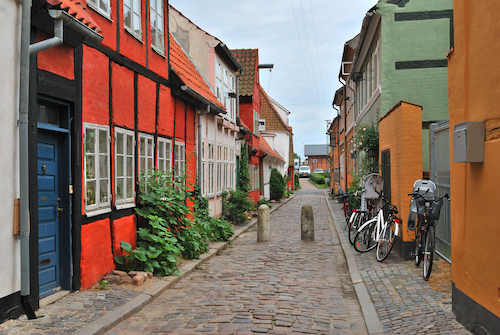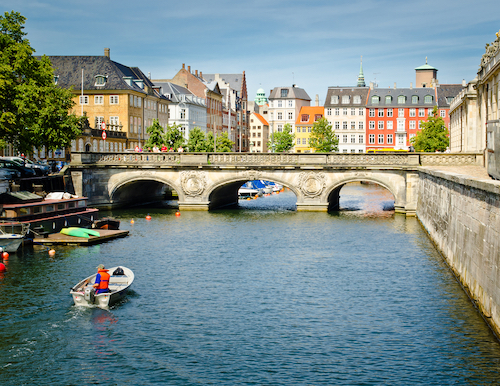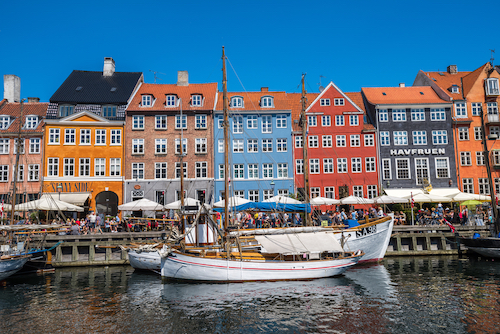All non-EU/EEA nationals have to obtain permission from the Ministry of Justice in order to purchase property in Denmark, and must confirm that the property would be used as their personal residence throughout the year. EU/EEA citizens do not have to obtain permission to buy property, but they must confirm in a statement attached to the deed that it would be used for year-round residency. The majority of people in Denmark find their property with the help of an estate agent, and use a solicitor to conduct the legal work that is involved. The house purchase process can generally several months.It is also possible to borrow finances to purchase property in Denmark from various banks or mortgage credit institutions, normally up to 80% of the property value. It is recommended to obtain a buyer’s certificate from the lender which confirms the finance arrangement, so that buyers can make a quick offer if they find a suitable property.
Many sellers have a property report that is compiled by a building expert and can make this document available to all prospective buyers. The report gives details of the physical condition of the property and any possible defects. If no property report is provided, the seller can be responsible for a period of 20 years for any serious defects that could emerge. If the buyer requests a transfer deed, the cost of which is shared between them and the seller of the property, this property report must be produced. A transfer deed provides insurance for the buyer against any faults or defects that may occur, and insurance for the seller against any claims from the buyer.

When the offer is accepted and the purchase agreement has been signed by both buyer and seller, the buyer should give a deposit of 5% of the purchase price with the estate agent. There is also a cool-off period of 6 days after signing the purchase agreement during which the buyer can annul that agreement, and may be required to pay the seller 1% of the purchase price.
The balance of the purchase price is payable on the agreed closing date for the sale of the property. Various documents can be involved in the purchase of a property in Denmark, which are transferred to buyers via their solicitor.
These documents include:
– the land certificate, which sets out the rights and obligations relating to the property, a cadastral map of the property
– the operating permit which confirms that the property meets building regulations
– the BBR-owner information which is issued by the local council and provides details of the property such as its size, history, dimensions, location and technical conditions
– the property tax note, issued annually and setting out the expected level of the following year’s taxes and related property expenses
– energy rating and energy plan, showing the current heating, electricity and water consumption and giving guidance on how to reduce these.
If the purchase is financed with a mortgage, the buyer is required to take out buildings and fire insurance on the property.
Despite Denmark being known for the liberalism, acquiring the property in this country can be quite difficult. Non-residents may not buy real property in Denmark unless they fulfill the following:
– Have previously resided in Denmark for at least five years.
– Are an EU national working in Denmark.
– If a non-EU national, have a valid residence or business permit.
There are also some special restrictions on foreign ownership in some areas of the country, especially when buying summer holiday houses. This is particularly the case in coastal areas. These are popularly known as the “anti-German rules”, because they are made to prevent coastal areas from being overrun by German second home owners. However, the purchase of “all-year-round” properties, which are not located in popular areas along the coastline, is actually possible as long as buyers satisfy the aforementioned requirements.
Corporate Route
Since it is very tricky to buy Danish property as a non-resident and foreign individual, expats could consider forming their own local limited companies to do the buying. An ApS (Anpartsselskab), the Danish version of a private limited company, is highly recommended. Resident legal entities are allowed to buy property in this country.

Once the right property is found, it is recommended to get someone to check for damp or building construction errors. The seller will offer a property report which describes the physical condition of the property, including noticeable defects or some conditions that may cause new defects. Though a property report is not a requirement, it is necessary when wanting a transfer deed. When buying a property, except co-operatives and weekend cottages, the seller is required to inform the buyer about the energy expenses and give suggestions on how to lower the energy consumption on the property.
Once the contract is made, a deed of conveyance is subsequently drawn up, usually by the buyer’s attorney. The deed of conveyance assures the buyer of clear title to the subject property once the deed has been recorded at the local land registry office. After that, the real estate agent corresponds with a solicitor/lawyer in negotiating the purchase price, before the buyer and seller sign the final document contracts. The solicitor/lawyer has to notarize them on the behalf of buyer and issue the official owner document. For a period of six days after signing the purchase agreement, the deal can be nullified by giving written notice, but the buyer is required to pay compensation, which is 1% of the nominal purchase price.
When the purchase agreement is finally signed, the buyer deposits the first part of the down payment, which is 5% of the cash price, with the real estate agent. The rest of the down payment is deposited usually in the seller’s bank, or into some commercial escrow bank account once the transfer deed has been signed. The funds can be released only when the buyer has received the unconditional title to the property. Escrow typically lasts 60 to 120 days.
Would you like to share your experience of life abroad with other readers? Answer the questions here to be featured in an interview!


